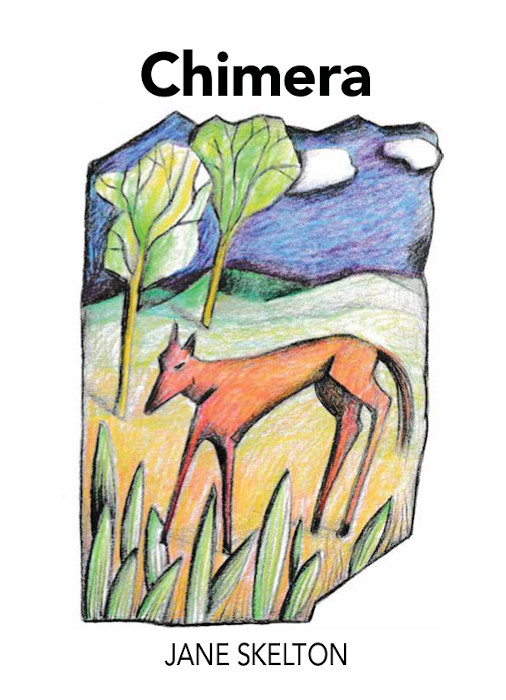 Chimera says a lot in so few pages, Skelton makes the reader enter moments, fragments of time, the land, life: imagined and real. In this book Skelton once more has demonstrated her skills as a writer.
Chimera says a lot in so few pages, Skelton makes the reader enter moments, fragments of time, the land, life: imagined and real. In this book Skelton once more has demonstrated her skills as a writer.
Tag: poetry
A review of You Don’t Have To Go To Mars For Love by Yona Harvey
 Reading through You Don’t Have to Go to Mars for Love, I experienced a litany of emotion that found me racking through memories, hopes, and losses. The work is astoundingly raw and explorative. Harvey dances between forms and visual presentation with the precision and coherency of a professor, the care of a mother, and the creative wield of a comic book artist.
Reading through You Don’t Have to Go to Mars for Love, I experienced a litany of emotion that found me racking through memories, hopes, and losses. The work is astoundingly raw and explorative. Harvey dances between forms and visual presentation with the precision and coherency of a professor, the care of a mother, and the creative wield of a comic book artist.
A review of Journey to Tatev by Lillian Avedian
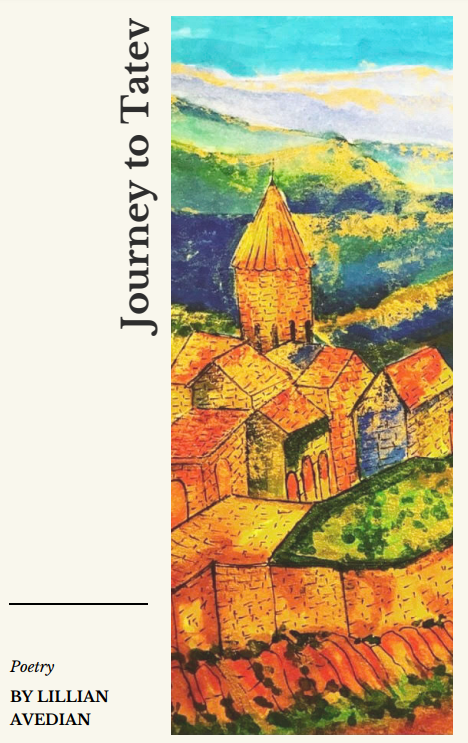 Journey to Tatev is a love poem to the self and to the other, written along the trajectory of a single journey. These airy, deeply rhythmic poems encompass the multi-lingual voice of a migrant, coming-of-age, coming out, coming to terms with the past and future simultaneously. Words and notes dance across the page, engaging all of the senses in this vibrant and deeply moving collection.
Journey to Tatev is a love poem to the self and to the other, written along the trajectory of a single journey. These airy, deeply rhythmic poems encompass the multi-lingual voice of a migrant, coming-of-age, coming out, coming to terms with the past and future simultaneously. Words and notes dance across the page, engaging all of the senses in this vibrant and deeply moving collection.
A review of Popular Longing by Natalie Shapero
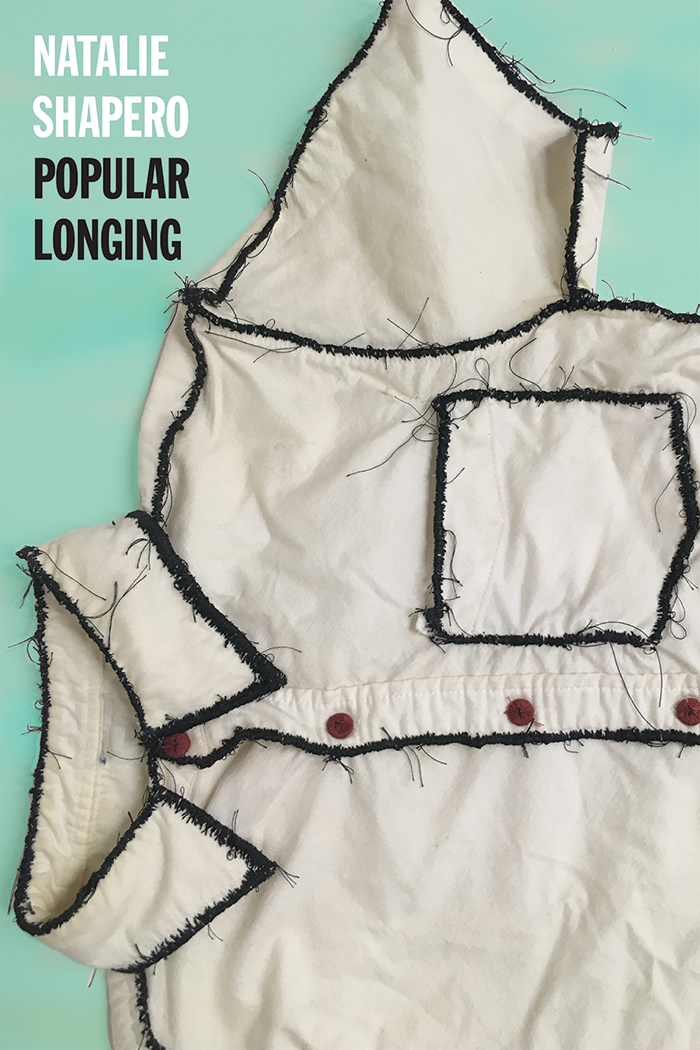 At the center of the collection is the breathtaking tour de force entitled “Don’t Spend It All in One Place,” a series of fourteen fourteen-line poems (though not exactly “sonnets” in a metrical sense), whose themes of violence and art and time, coming “unstuck” in time, make one think of Billy Pilgrim, Kurt Vonnegut’s anti-hero in Slaughterhouse Five. There’s a similar dark humor at work in Shapero’s poems.
At the center of the collection is the breathtaking tour de force entitled “Don’t Spend It All in One Place,” a series of fourteen fourteen-line poems (though not exactly “sonnets” in a metrical sense), whose themes of violence and art and time, coming “unstuck” in time, make one think of Billy Pilgrim, Kurt Vonnegut’s anti-hero in Slaughterhouse Five. There’s a similar dark humor at work in Shapero’s poems.
A review of The Truth about Our American Births by Judith Skillman
 Skillman employs many references to transportation – trains, mostly, but other kinds too. In the introductory poem we get our first train reference, when the grandmother is counting beats for her own personal waltz: “Always the counting beneath the whistles of trains/ running westward from the town of no money.” (from My Grandmother’s Waltz, p. 18). The train here is ghost-like. It brings a nagging fear of having to escape poverty.
Skillman employs many references to transportation – trains, mostly, but other kinds too. In the introductory poem we get our first train reference, when the grandmother is counting beats for her own personal waltz: “Always the counting beneath the whistles of trains/ running westward from the town of no money.” (from My Grandmother’s Waltz, p. 18). The train here is ghost-like. It brings a nagging fear of having to escape poverty.
A review of Letters in Language by Harold Legaspi
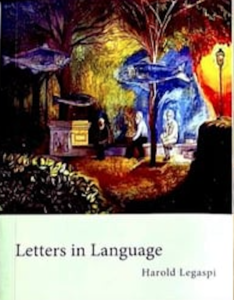 Letters in Language is a powerful collection: vibrant, sexy, sad, and very smart. The poems are dense, but also full of play, open space for reader interpretation, and steeped in cultural and literary references. As with all memoir, it is the exploration of a life, but is also an exploration of poetry, the way in which language itself creates reality and history, and very nature of the literary form.
Letters in Language is a powerful collection: vibrant, sexy, sad, and very smart. The poems are dense, but also full of play, open space for reader interpretation, and steeped in cultural and literary references. As with all memoir, it is the exploration of a life, but is also an exploration of poetry, the way in which language itself creates reality and history, and very nature of the literary form.
A review of Flares by Christopher Merrill
 In many of these poems, what begins as a hyper-local calamity–in an alley, a travel lodge, a club–transmogrifies in Mr. Merrill’s hands into sentences where what comes next is determined to flush the subject straight out of its just-tamped-down bed in the tall grass. The reader is shocked into vigilance, which gradually becomes a kind of acute reciprocity, an attention that is not easily achieved in our daily lives.
In many of these poems, what begins as a hyper-local calamity–in an alley, a travel lodge, a club–transmogrifies in Mr. Merrill’s hands into sentences where what comes next is determined to flush the subject straight out of its just-tamped-down bed in the tall grass. The reader is shocked into vigilance, which gradually becomes a kind of acute reciprocity, an attention that is not easily achieved in our daily lives.
A review of Second Story by Denise Duhamel
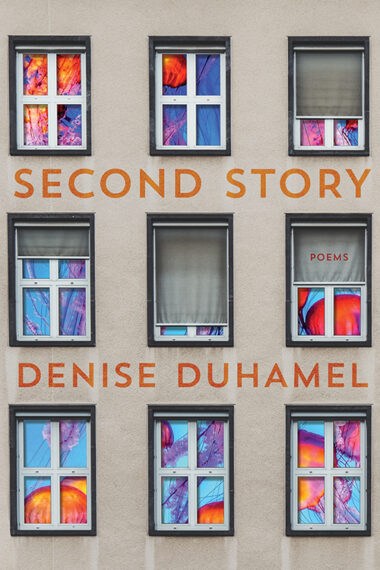 Denise Duhamel can be serious and playful in the very same sentence, solemn and satiric in a single stanza. At the heart of this marvelous new collection is the thirty-five page mock epic, “Terza Irma,” a poem written in terza rima – an arrangement of succeeding tercets that rhyme aba bcb cdc ded, etc. Notably, it’s the rhyme scheme Dante uses in The Divine Comedy, which is appropriate because Duhamel describes a sort of Inferno of her own, her experience of the 2017 hurricane that devasted Florida. She is by turns serious and comic.
Denise Duhamel can be serious and playful in the very same sentence, solemn and satiric in a single stanza. At the heart of this marvelous new collection is the thirty-five page mock epic, “Terza Irma,” a poem written in terza rima – an arrangement of succeeding tercets that rhyme aba bcb cdc ded, etc. Notably, it’s the rhyme scheme Dante uses in The Divine Comedy, which is appropriate because Duhamel describes a sort of Inferno of her own, her experience of the 2017 hurricane that devasted Florida. She is by turns serious and comic.
A review of Foxline by Chris Mansell
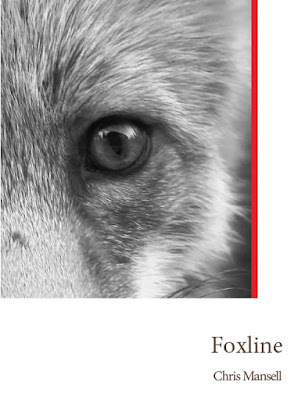 Foxline is an exquisite, bold work of poetry, with each poem taking on multiple meanings and holding back just the right amount at the point of denouement to allow space for the reader to pause, think, and engage. Mansell’s writing is masterly in its restraint, and beautifully written throughout. Though Flying Island’s Pocket Poetry series uses a tagline of “minor works,” Foxline is anything but.
Foxline is an exquisite, bold work of poetry, with each poem taking on multiple meanings and holding back just the right amount at the point of denouement to allow space for the reader to pause, think, and engage. Mansell’s writing is masterly in its restraint, and beautifully written throughout. Though Flying Island’s Pocket Poetry series uses a tagline of “minor works,” Foxline is anything but.
A Review of Beyond the Moon’s White Claw by Patty Dickson Pieczka
 Perhaps what is most heartrending is the poem is cast in the present simple conditional mood until the last sentence throws it into the past, which cannot be changed. The speaker’s helplessness before the pain of the PTSD of her ex-husband is compounded and yet inevitably accepted by that painful turn. In the collection, the various symbols from here on begin reversing and resolving.
Perhaps what is most heartrending is the poem is cast in the present simple conditional mood until the last sentence throws it into the past, which cannot be changed. The speaker’s helplessness before the pain of the PTSD of her ex-husband is compounded and yet inevitably accepted by that painful turn. In the collection, the various symbols from here on begin reversing and resolving.